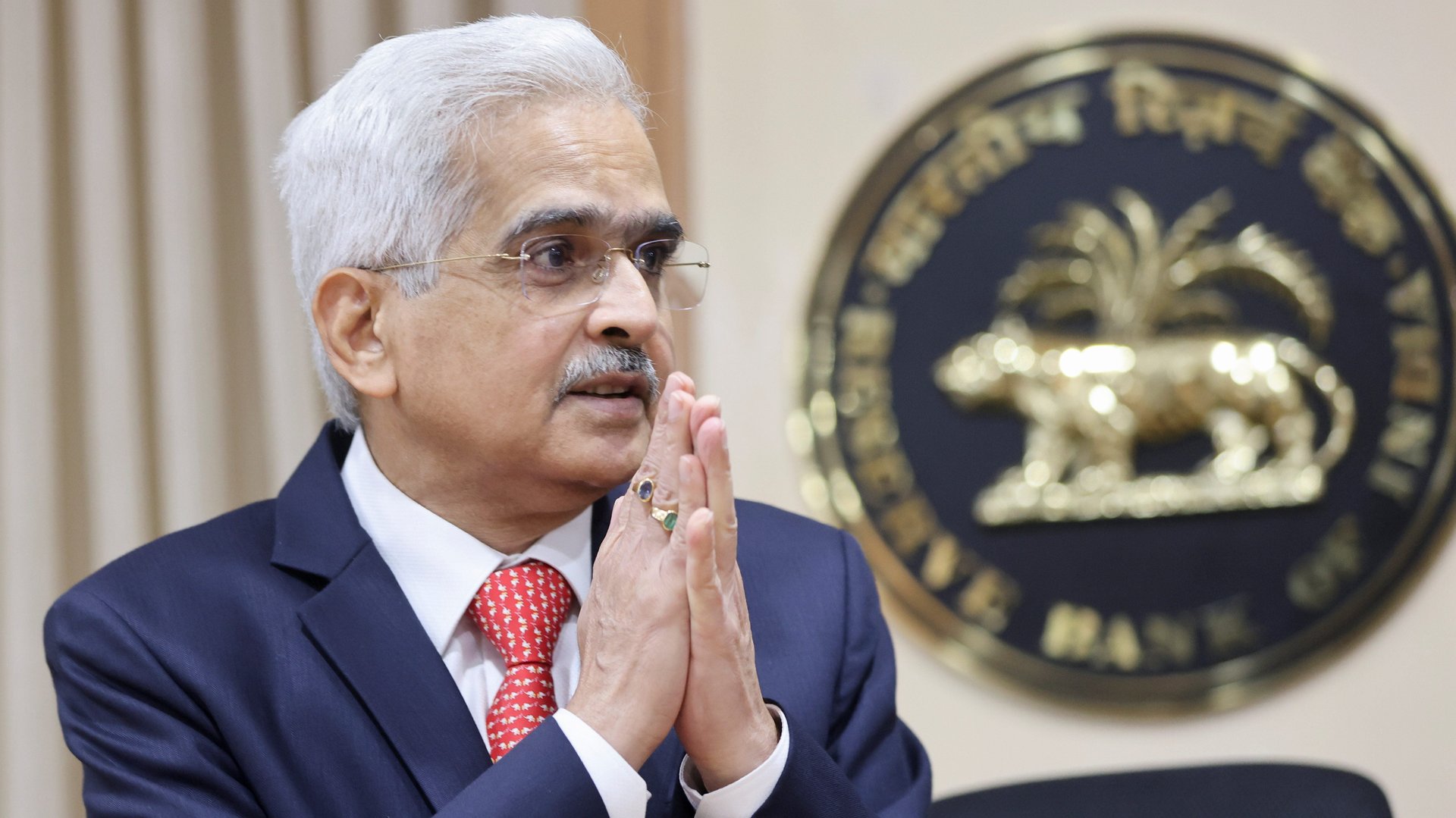India’s central bank hikes key policy rate for the second time in a month amid rising inflation
This post has been updated.


This post has been updated.
The Reserve Bank of India (RBI) today raised the repo rate—at which it lends short-term funds to commercial banks—by 50 basis points (bps) to 4.90%.
The move, coming a little over a month after it had increased it by 40 bps in an unscheduled policy move, indicates a growing realisation that inflation needs to be curbed. In April, the consumer price index-based inflation skyrocketed to 7.79%, marking the highest level in nearly eight years.
The Indian government has officially set a target of 4% for inflation for the RBI, but with a tolerance band of two percentage points. However, consumer prices have breached that target range of 2-6% consistently since the beginning of 2022.
Today (June 8), in the monetary policy review, RBI governor Shaktikanta Das said retail inflation was likely to remain above the upper tolerance band of 6% this calendar year. “The upside risks to inflation as highlighted in the April and May 2022 policies have materialised earlier than anticipated—both in terms of timing and magnitude,” his statement (pdf) said.
Further, the central bank raised its inflation projection for the current fiscal year to 6.7% from 5.7% estimated in April, mainly due to a spike in tomato prices that could fuel food inflation.
The central bank has been criticised for its inaction to control rising price pressures, caused by global supply shocks and geopolitical turmoil. It was only in April that the RBI acknowledged the surge in consumer inflation, but did not take any material steps.
“The inflation prints of the next two quarters are likely to exceed 7%, which could pressure the RBI into acting sooner rather than later,” Madhavi Arora, lead economist at Emkay Global Financial Services said.